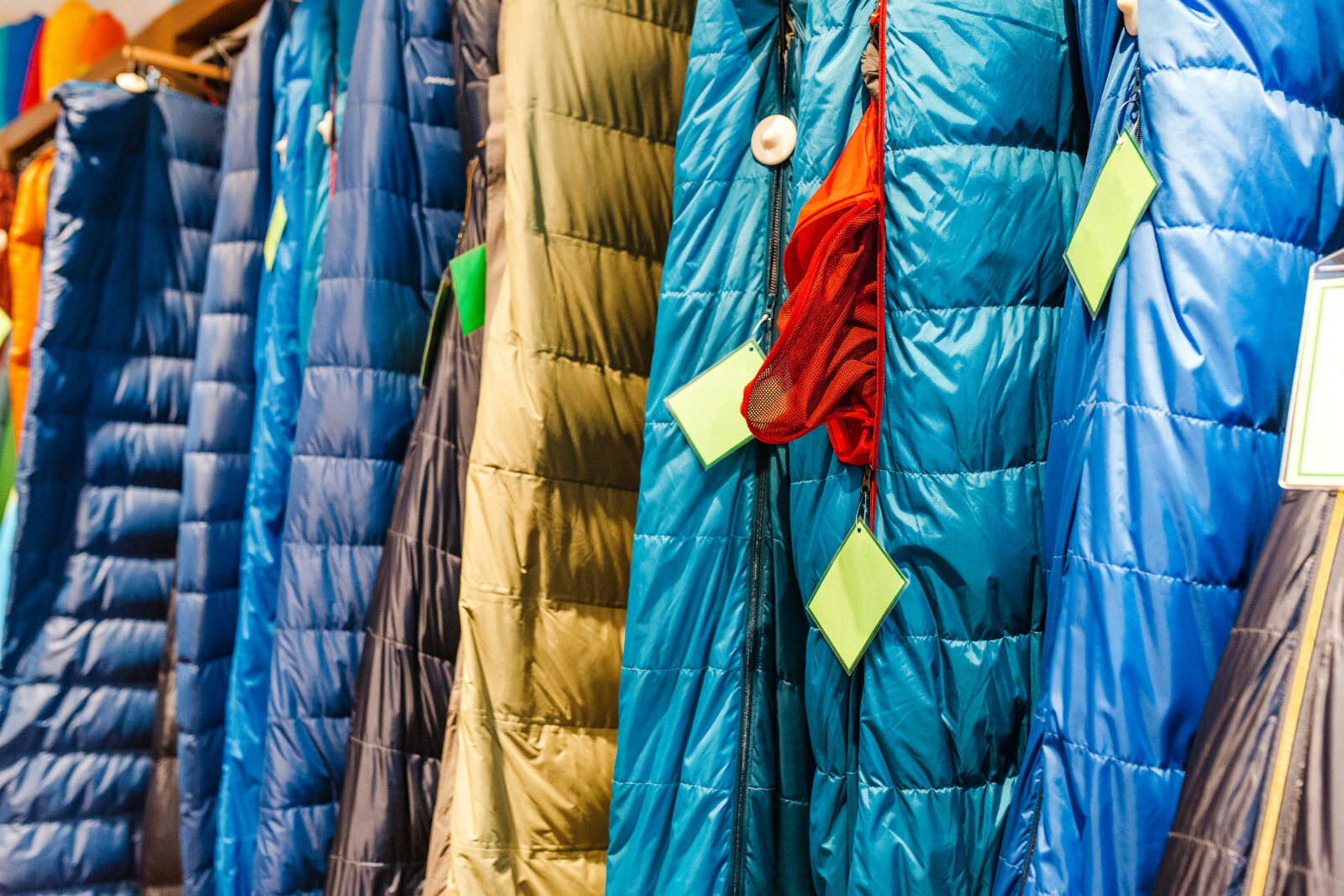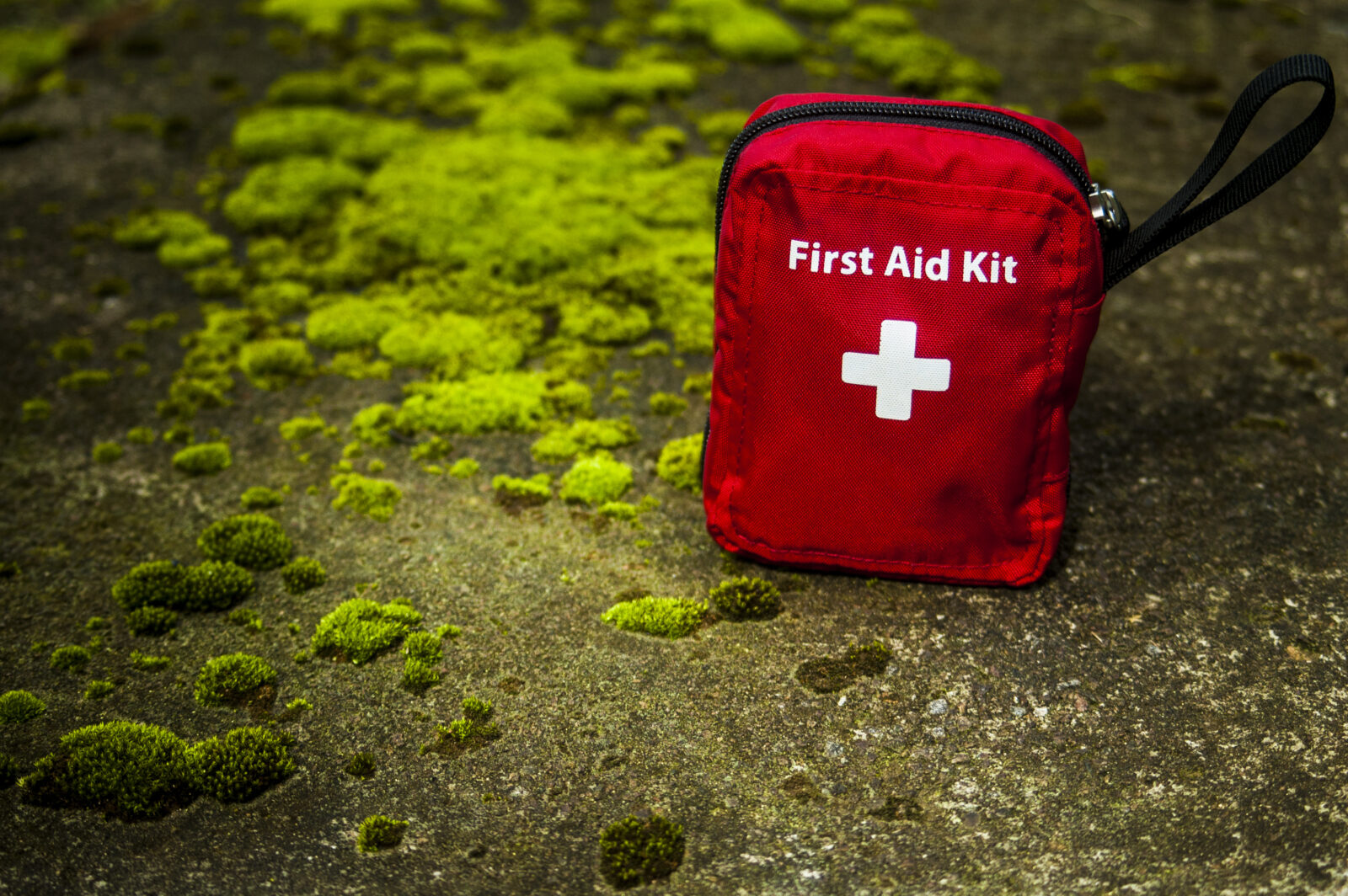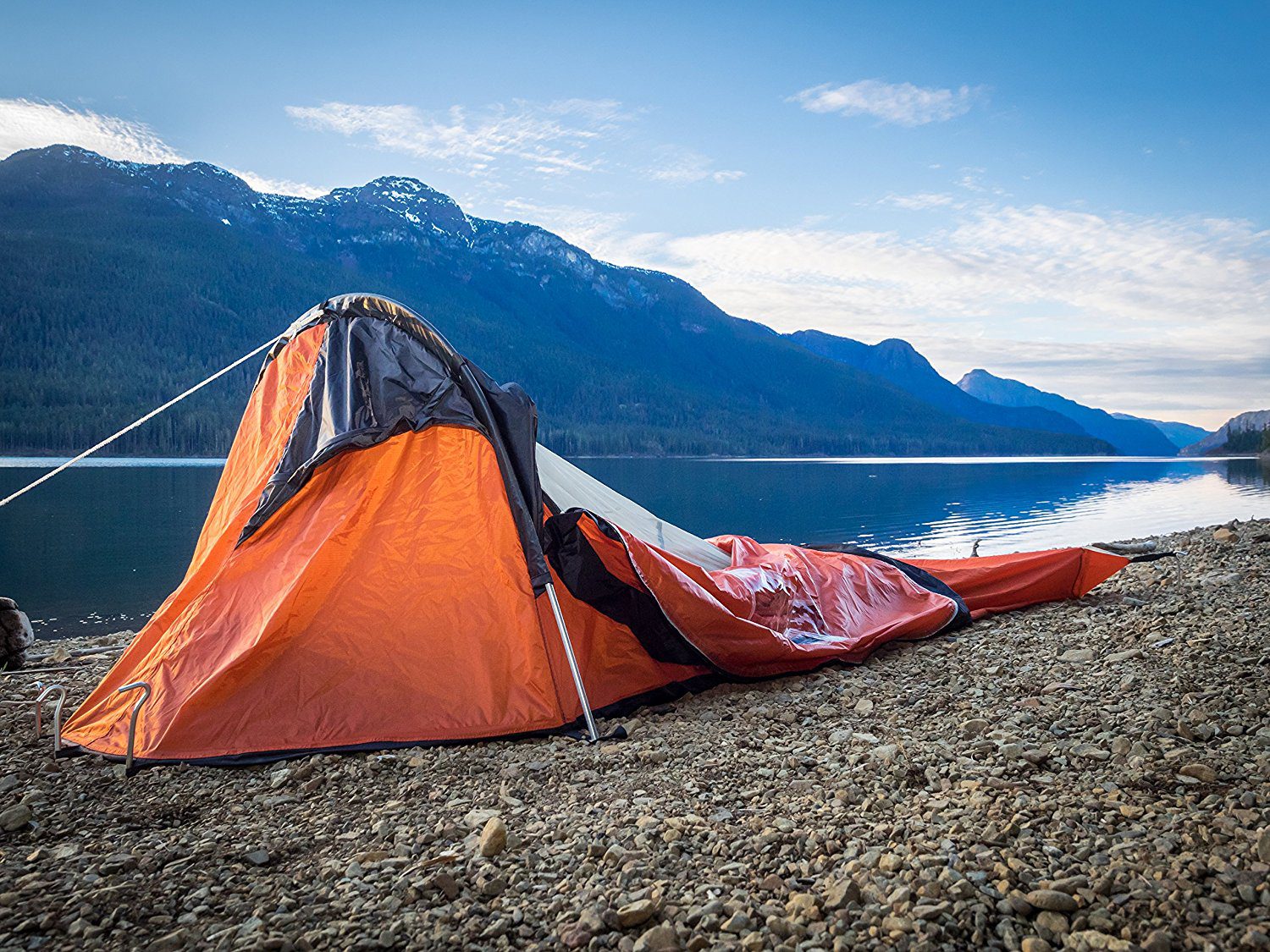Planning your first solo camping trip but wondering what you need to pack for your adventure?
We’ve got you covered.
Your first camping trip on your own can seem daunting at first, but we’re here to help you prepare for your outing.
When it comes to camping on your own, it’s essential that you bring the right gear on hand to handle whatever situations might arise. So, we’ve created this solo camping checklist to ensure just that.
In this article, we’ll introduce you to the most important items to pack on your next solo outdoor adventure. From tents to headlamps, here are some essential pieces of gear you shouldn’t leave home without on your next solo trip in the great outdoors.
1. Backpacking tent
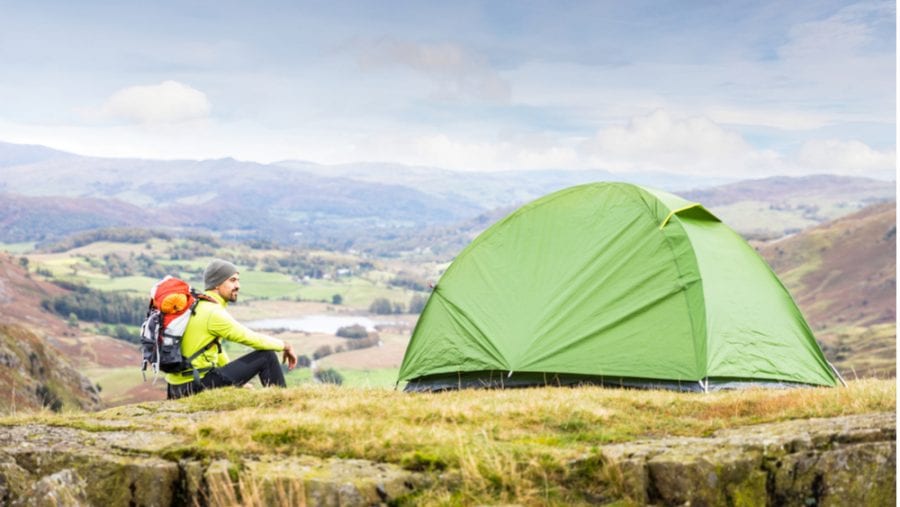
Any good outdoor trip starts with having the right shelter for the job, and solo camping trips are no exception.
Most solo camping trips involve packing a tent to keep one warm and dry at night. While you might automatically think that a one-person tent is best, most people find that a two-person tent is more appropriate.
Why, you might ask?
Well, most one-person tents are really small, so they don’t offer much in terms of comfort or gear storage. So, opting for a two-person tent can go a long way toward enhancing your comfort at night.
Alternatively, for solo adventures below treeline, like in Great Smoky Mountains National Park, you could consider packing a hammock, instead. If you do choose to sleep in a hammock, though, don’t forget to pack your other hammocking accessories, like your hammock bug net and hammock tarp to help you catch some Zzzs at night.
Read More : How to Get A Good Night Sleep while Camping
2. Backpacking chair
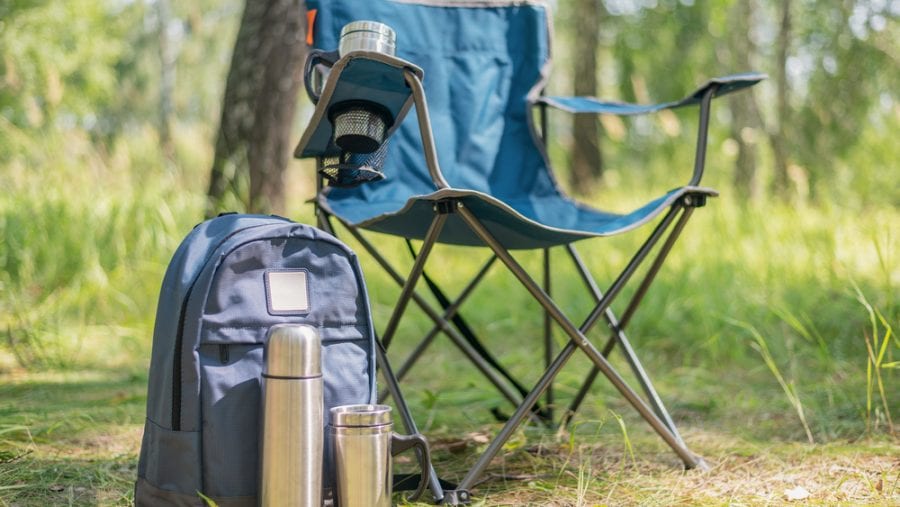
If you’re going on a solo camping adventure, you should be comfortable while hanging out in camp. So, packing a quality backpacking chair is a solid choice.
Since solo campers tend to have a lot of free time to themselves while in camp, having a portable chair in your gear list can provide a comfy place to sit in the evenings.
That way, you can sit back, relax, and enjoy writing in your journal or reading a book after hiking on your solo trek.
3. Survival gears
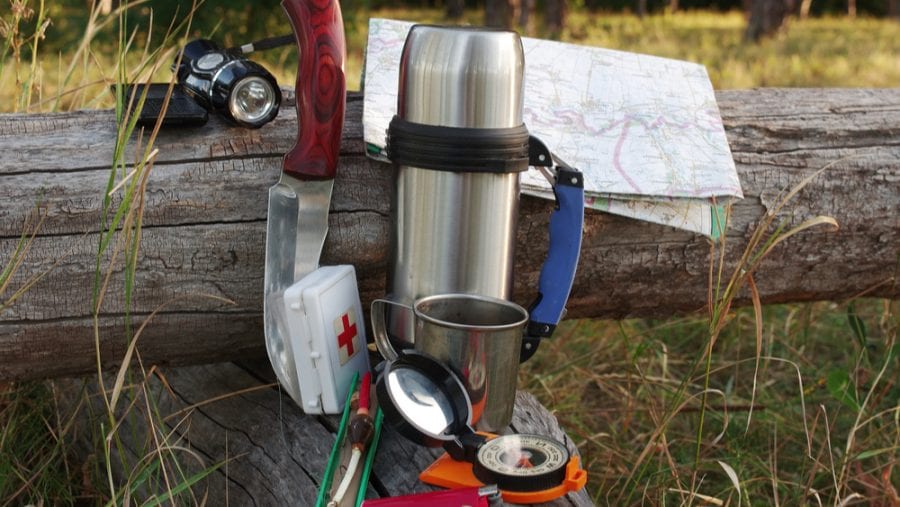
Anyone who heads into the woods alone needs to be prepared for whatever life might throw their way. As a result, it’s important to always have survival gear in your pack when venturing into the mountains alone.
Although we hope you never have to use them, having the right survival gear with you can make a major difference if you are in a sticky situation while on the trail in a remote place like Rocky Mountain National Park.
Alternatively, if you stumble across someone else who’s in distress while you hike, the survival gear that you have with you could help them out, too.
What is the moral of the story?
Don’t head into the woods alone without your survival gear. If you ever have to use it, you’ll be happy you tossed it into your pack.
4. Knives & multitools
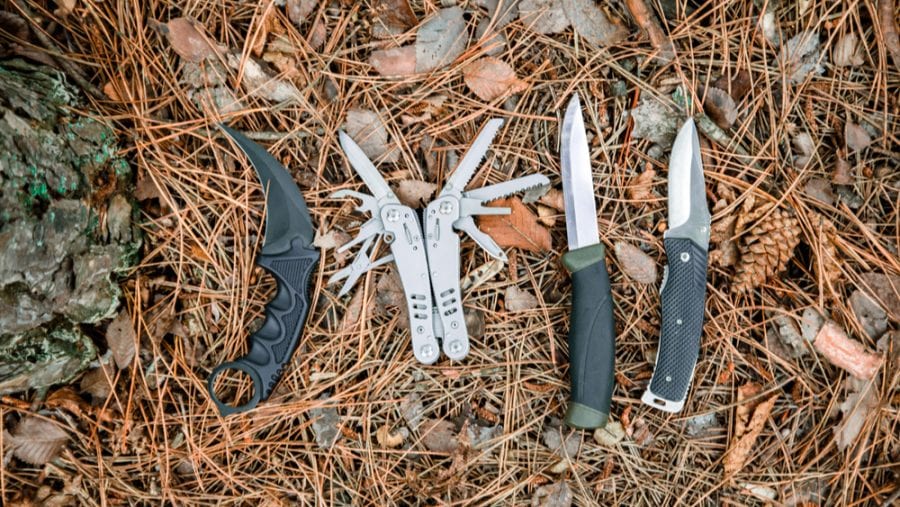
In addition to survival gear, you should never head into the backcountry without knives and multitools.
Knives and multitools are some of the planet’s most versatile pieces of gear. Whether you need to fix a broken tent pole or make some kindling for your fire, having the right knife or multitool in your pocket can be the difference between a fun camping trip and an outing you’d rather forget.
Plus, as we’ve mentioned, when you’re camping alone, having the right gear to help you handle any issues is important. Knives and multitools can help you become self-sufficient and handle whatever situations you encounter.
5. Camping meals
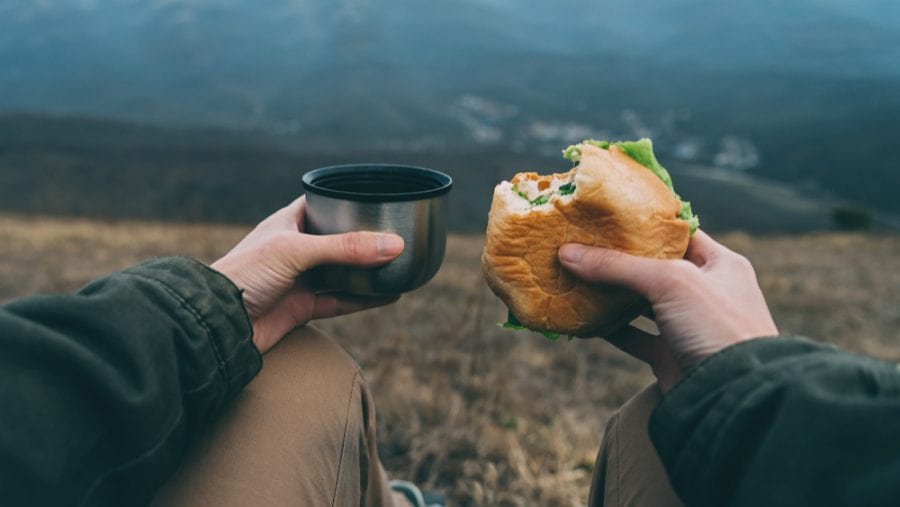
If you’re camping solo, cooking up a 3-course meal at the end of a long day of hiking can be a bit of a chore. In these situations, pre-packed camping meals might just be what you need.
With the right camping meals, you can roll into your campsite, pitch your tent, turn on your camping stove, and boil water to rehydrate your food. Then, you can grab your utensils and dig right in for a quick one-person meal with minimal hassle.
The best part?
Packing camping meals means you don’t have to do any dishes, which is ideal if you’re adventuring alone.
6. First aid kits
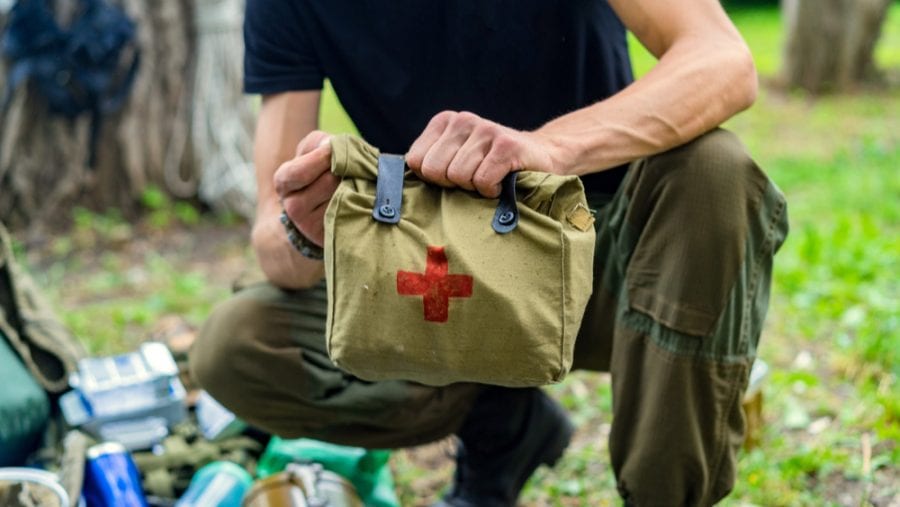
We’ve already discussed the importance of having survival gear, knives, and multi-tools on the trail when camping solo. But we’d be remiss if we didn’t also mention that you should bring a first aid kit.
Of course, everyone should pack a first aid kit when camping, regardless of whether they’re going outside on their own. But solo campers need to be extra prepared because there might not be anyone else around to help them if something were to happen.
So, pack your first aid kit whenever you head outside, especially when you head into the mountains by yourself.
7. Firestarters
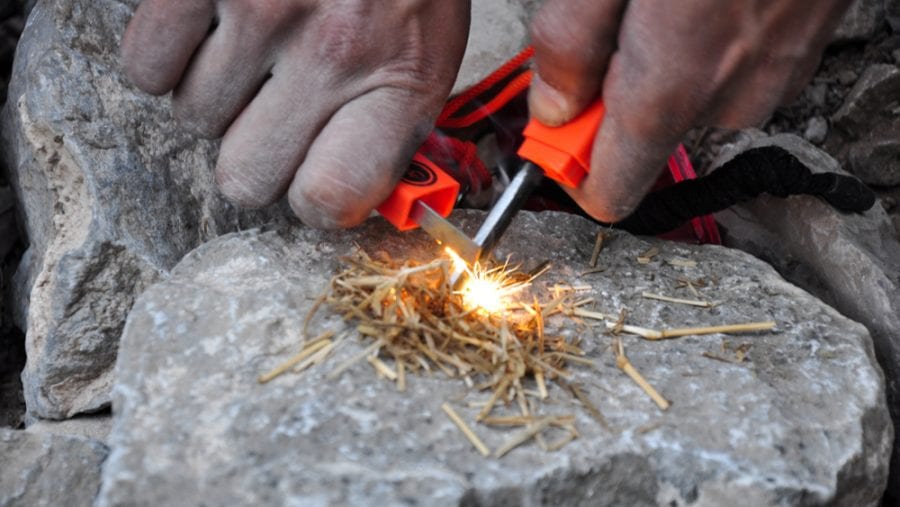
There are few better ways to spend a night in the backcountry in a place like Yosemite National Park than with a roaring campfire. Since building a campfire can be tricky, though, it’s best to bring a bunch of firestarters with you when camping solo.
Packing firestarters and other useful tools, like lighters and kindling, can make your fire-building experience as seamless as possible.
When you’re camping solo, every minute you spend tending to your fire is one fewer minute that you’re not spending on enjoying it. Therefore, having firestarters and other similarly nifty equipment lets you make the most of your solo adventure.
8. Hiking backpacks
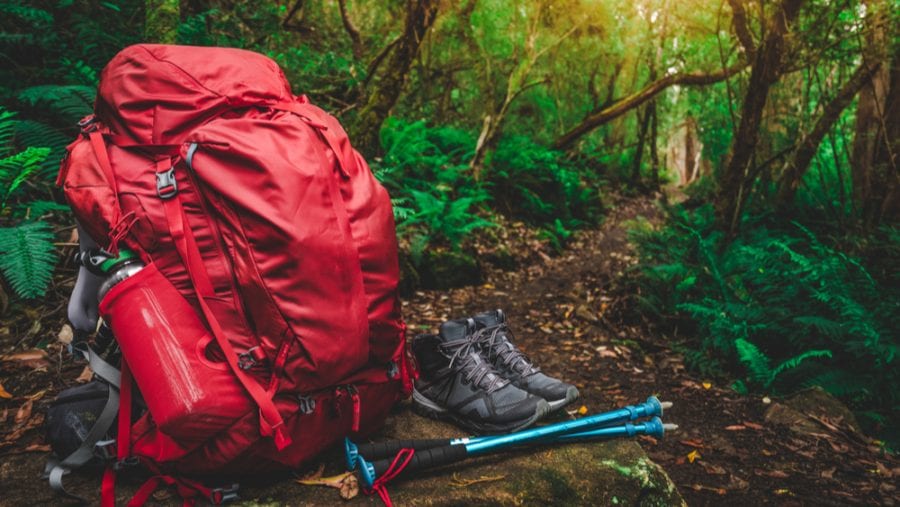
Camping on your own is all about being self-sufficient. However, being self-sufficient requires having a lot of gear, even when you venture away from camp. So, if you’re heading on a solo trip, you’ll need a quality hiking backpack to carry all your gear.
The ideal solo camper backpack is comfortable and functional. For solo campers, this means having a model you can quickly put on and take off on your own, even if it’s fully loaded. It also means having enough space to carry all your gear as you don’t have anyone you can rely on if your pack is over-stuffed.
So, as you search for the right backpack for your adventures, think long and hard about whether it can accommodate all your gear. If not, it might be worth investing in a larger model.
Read More : How to Pack Light for Your Next Camping Trip
9. Headlamps
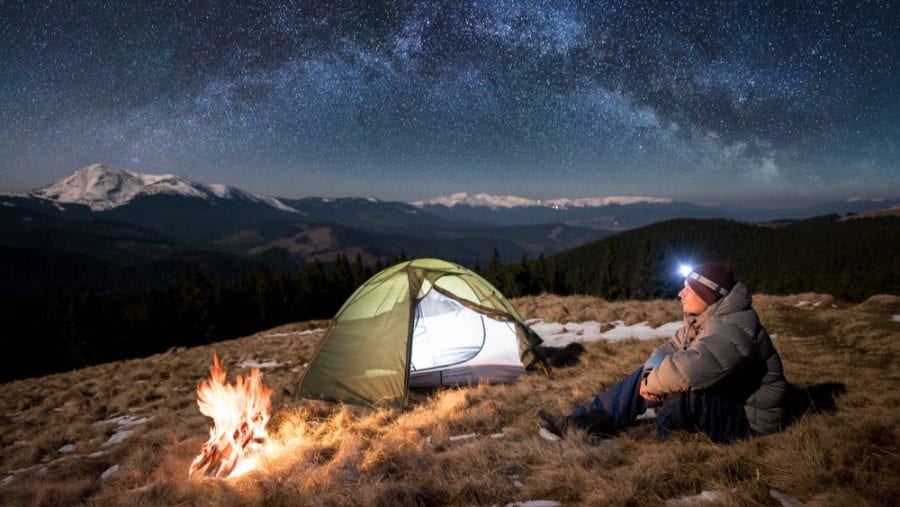
As we’ve mentioned, camping alone often involves spending a lot of free time in camp in the evenings. For many solo campers, this free time is a great opportunity to relax by journaling, reading, knitting, or reflecting on their experiences.
Since most of us tend to stay up later than sunset, though, having a headlamp while solo camping is critical for an enjoyable adventure experience. In addition to illuminating your tent for nighttime reading, a headlamp is a must for general, all-around activities in camp at night.
10. Extra hiking clothes
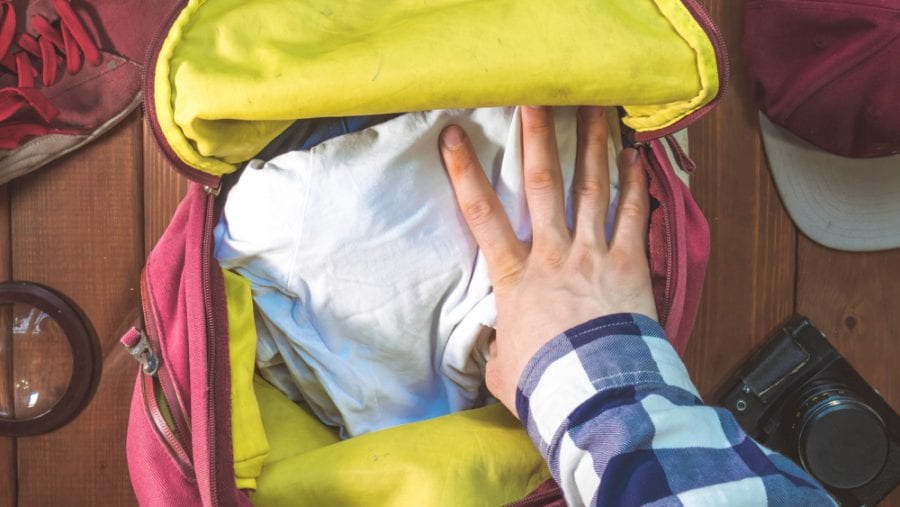
Finally, all campers must come prepared with plenty of extra hiking clothes when camping alone. Although we recommend plenty of extra hiking clothes at all times when venturing into the great outdoors, doing so is especially vital when adventuring solo.
Indeed, since you won’t have friends and fellow hikers to rely on for spare gear while solo camping, you must have spare clothing to keep you warm and dry.
As a general rule, we recommend packing at least an extra pair or two of hiking socks, an extra set of hiking shorts or hiking pants, and plenty of warm clothing. Other items you’ll want include a rain jacket and rain pants to help you stay dry in foul weather.
Oh, and if you expect it to be particularly cold at night while you solo camp, packing heated gear, like heated socks, heated gloves, and the like, can also make a huge difference in your comfort levels.
Gaby Pilson
Gaby is a professional mountain guide with a master’s degree in outdoor education. She works primarily in the polar regions as an expedition guide, though she can be found hiking, climbing, skiing, sailing, or paddling in some of the world’s most amazing places when not at work.
